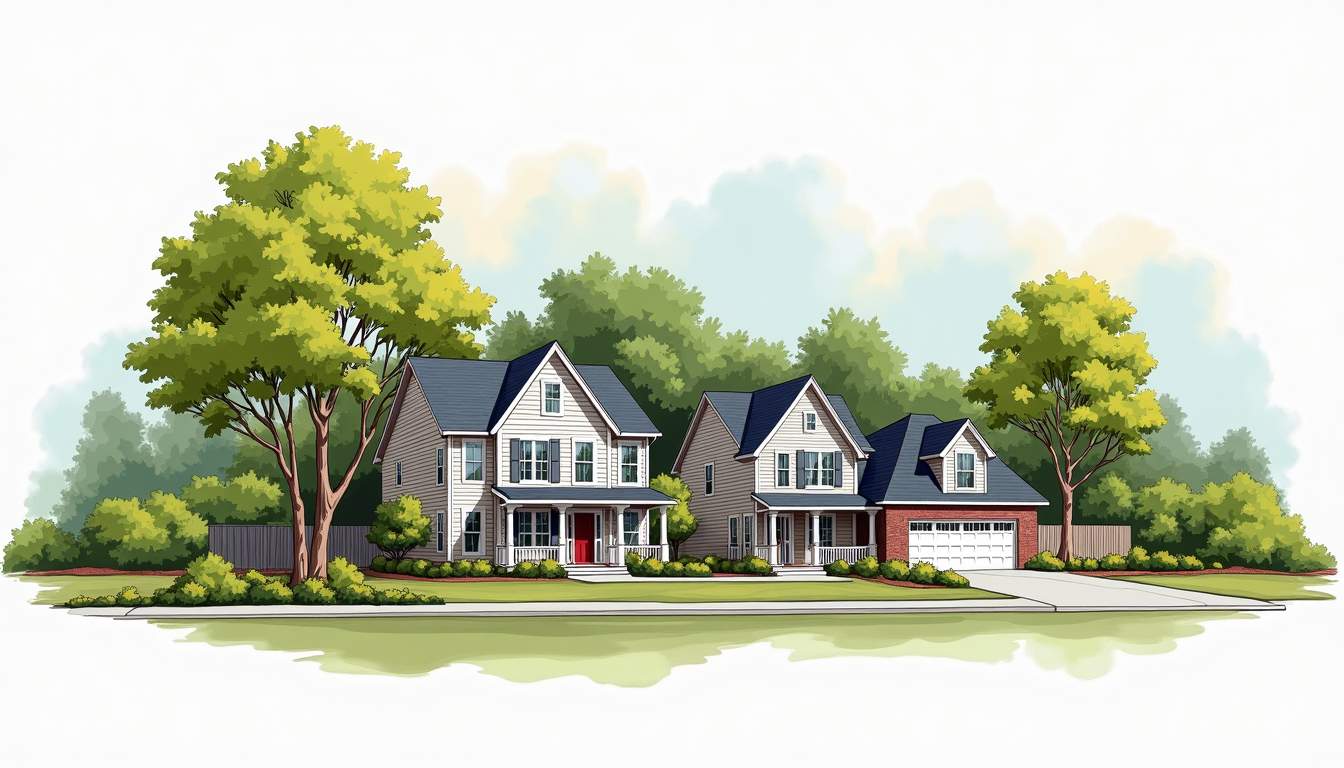
Tennessee National Golf Club has a way of stitching itself into family stories. For generations, the course, clubhouse, and surrounding community become more than a place to play golf — they become a backdrop for birthdays, graduations, quiet afternoons, and loud celebrations. This article explores why families choose to stay at Tennessee National through the years, examining the community feel, the amenities, the educational opportunities nearby, and the intangible benefits that turn a country club into a multi-generational home.
Communities built around country clubs have a particular rhythm. At Tennessee National, that rhythm includes seasonal events, casual meetups on the practice green, and children learning the game from older members. Families often arrive as newcomers and quickly find casual friendships that deepen into long-term bonds. These relationships provide social stability and a sense of belonging that benefits everyone.
When families stay in one place for years, the neighborhood gains continuity. Parents know each other, children grow up together, and milestones are shared. This continuity creates a safer, more supportive environment where neighbors look out for each other, share resources, and celebrate achievements as a collective. The club becomes a shared living room for the entire neighborhood.
One of the most tangible benefits of long-term residency is the intergenerational connections that form. Grandparents pass down club traditions, teenagers receive mentorship from older members, and children grow up seeing regular social interaction between different age groups. These connections cultivate respect for community history and build strong social capital.
Annual tournaments, holiday parties, and family-friendly picnics mark the calendar and give families recurring reasons to gather. These events create traditions that children look forward to and remember fondly into adulthood. The predictability of these anchors reinforces the decision to stay put, as families come to associate the club with life’s rituals.
Safety and youth programming are major considerations for families deciding where to raise their children. Tennessee National places emphasis on well-structured junior golf programs, camps, and supervised activities that provide both fun and skill development. These offerings are designed to be inclusive, accommodating beginners and serious junior competitors alike.
Beyond golf, the environment around the club tends to prioritize safe streets, walkability, and access to parks. Parents appreciate the ability to let children play outdoors, ride bikes to friends’ houses, or walk to on-site amenities without constant worry. This balance of freedom and oversight encourages healthy childhoods and makes the location attractive for families looking to put down long-term roots.
Junior clinics, weekend lessons, and seasonal camps give kids productive outlets and help them build confidence. Coaches and volunteers often form relationships with families, allowing personalized attention and mentorship. Children who start in a junior program can progress through advanced instruction while maintaining those friendships and mentor relationships.
Design elements such as low-traffic residential streets, clearly marked paths, and community patrols contribute to peace of mind. For many families, the combination of a secure environment and active programming for children justifies staying through different life stages, from toddlers to teens preparing for college.
Location matters. Tennessee National is typically situated within reasonable driving distance of respected schools, higher education institutions, and regional employment centers. Good schools and convenient commutes are practical factors that encourage families to remain in one place rather than uprooting when children reach new stages in life.

The area’s combination of suburban tranquility and access to urban amenities appeals to families who want the best of both worlds. Local schools that partner with community organizations or offer extracurricular collaboration with the club can enhance a child's educational experience without requiring long travel times.
Being close to quality elementary and secondary schools reduces the stress of daily logistics. For older teenagers, accessibility to nearby colleges and universities also plays a role: family members often stay in the area to remain near young adults as they transition to campus life or return home during breaks.
Modern families value a reasonable commute. Areas around Tennessee National typically offer multiple route options and manageable driving times to major employment hubs. This flexibility allows parents to participate in club life while maintaining professional responsibilities, making the decision to stay both a lifestyle and a pragmatic choice.
Country clubs that sustain multigenerational loyalty tend to offer diverse amenities beyond the golf course. Tennis courts, swimming pools, fitness centers, dining options, and youth programs create a lifestyle ecosystem where every family member can find something they enjoy. This variety helps prevent boredom and keeps families engaged year after year.
Dining and social spaces are particularly important. Family-friendly restaurants, private event options for birthdays or graduations, and casual lounges where conversations can happen after a round of golf all contribute to a sense of belonging. When a club feels like a home extension, families are more likely to stay.
Seasonal programming such as summer swim leagues, holiday brunches, and fall festivals offer varied ways to connect. Recreational options cater to different interests and ages, ensuring that as children grow, there is always a relevant activity to participate in. That continuity of engagement is a strong retention factor for families.
Adaptive facilities—like junior-sized equipment, coached youth leagues, and family membership tiers—allow families to continue using club amenities without feeling like their needs are outgrowing the space. This kind of thoughtful service design makes transitions, such as a child moving from lessons to competitive play, smoother and more rewarding.
Choosing to stay in a club-centric community is often a financial and emotional investment. Homes in well-maintained club neighborhoods tend to hold value because of consistent demand, attractive communal spaces, and the prestige associated with membership. For many families, staying in place is both a sentimental and pragmatic choice.

Heritage plays into this too. Over time, family houses accumulate memories — first tee shots, backyard parties, neighborhood parades. These memories, combined with the financial stability of a desirable residential area, make moving less appealing. The idea of a home being passed down through generations is appealing to families who value continuity.
Real estate markets linked to active private clubs often exhibit stability because the amenities create persistent demand. Well-maintained landscaping, club governance that enforces standards, and community associations that protect common areas all help preserve neighborhood appeal and property values.
Traditions like annual family photos on the 18th green or a birthday dinner at the club’s dining room become part of a family’s identity. These rituals transform a place from an address into a repository of memories, making the prospect of leaving feel like losing a piece of family history.
Country clubs often serve as informal centers for professional networking and civic life. For families whose careers benefit from face-to-face relationships, the club environment facilitates introductions, mentorships, and business friendships. Over time, these connections can be as valuable as any other tangible benefit of membership.
Civic engagement is another lasting advantage. Clubs frequently host charity events, fundraisers, and civic meetings that connect families to local causes. Participation in these activities fosters a sense of purpose and local stewardship that reinforces the desire to stay and contribute to the community’s future.
Meeting peers and potential business partners at club events is a natural outcome of shared interests and social proximity. These interactions can lead to collaborations, job opportunities, and career mentorship that make local ties professionally advantageous.
Long-term residents often take on leadership roles in club governance, charitable initiatives, and neighborhood projects. These responsibilities strengthen personal investment in the community and create a cycle of involvement that encourages families to remain engaged across generations.
Beyond structured benefits, there is an intangible comfort that comes from continuity. Familiar faces, predictable routines, and a place that adapts to each life stage provide emotional security. This "rhythm of life"—the pattern of years shaped by regular involvement with club activities—becomes a central reason families stay.

As children move through childhood, adolescence, and into adulthood, the club remains a constant touchpoint. It becomes the setting for first lessons and last high school tournaments, family dinners and retirement parties, a living chronicle of family life. That continuity is a powerful force that binds families to place.
Rituals give structure to life: Sunday brunches, summer swim meets, and Thanksgiving dinners at the clubhouse all become part of family lore. These rituals produce vivid memories that reinforce attachment to the community and make leaving an emotional challenge.
Clubs that remain relevant do so by adapting services and amenities to changing member needs, from youth programs to senior activities. This responsiveness ensures that families of all ages continue to find value, reinforcing long-term residency and the sense that the community grows with its members.
Tennessee National offers more than manicured greens and social gatherings. It offers a landscape on which family life can unfold across generations. The combination of community roots, youth development, practical location, diverse amenities, and the intangible comforts of tradition and continuity explain why families choose to stay. For those who seek stability, connection, and a place that literally and figuratively grows with them, the club becomes less of a membership and more of a lasting home.
The decision to remain at Tennessee National reflects both deliberate choices and quiet, day-to-day experiences: a child’s first swing, a neighborhood friendship that spans decades, a place where rituals and routines create a shared history. Those things — more than any single amenity — keep families anchored from childhood through adulthood.
Ready to find a place where your family can grow, connect, and create lasting traditions? Welcome to Tennessee National, a premier gated community offering luxury living alongside a Greg Norman Signature Golf Course, private marina, waterfront dining, and over 20 exceptional amenities. Whether you’re seeking a move-in ready home or a custom build, our scenic nature trails, vibrant social clubs, and exclusive events provide the perfect backdrop for every stage of life. Schedule your private tour today and start building your family’s legacy at Tennessee National.